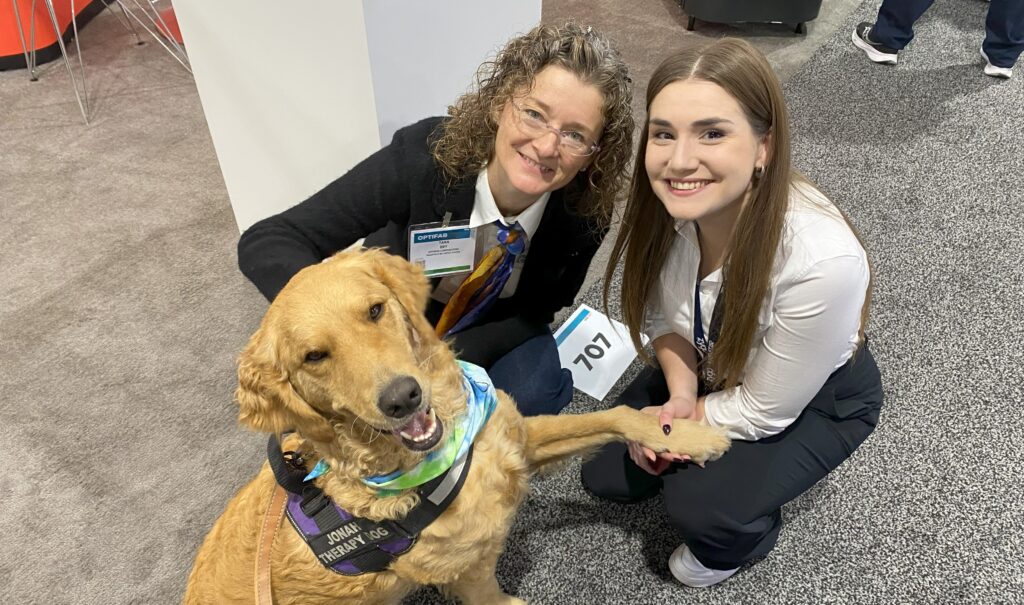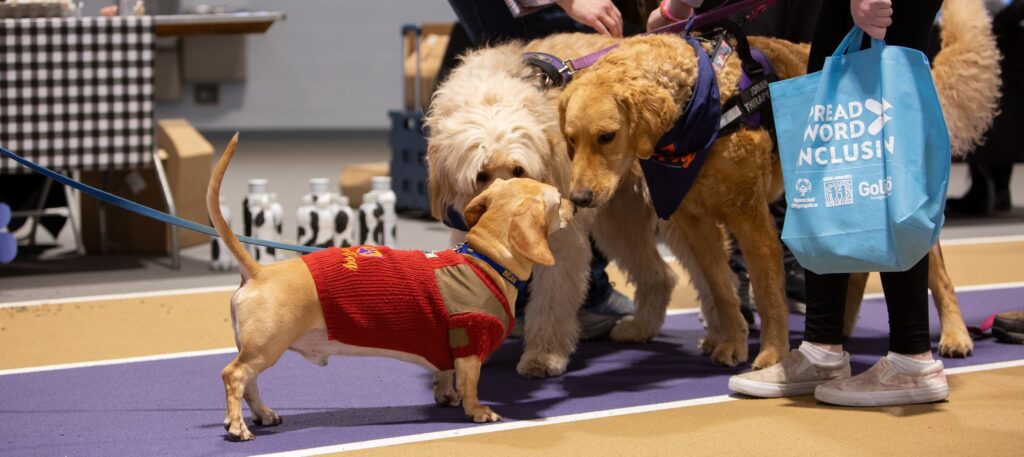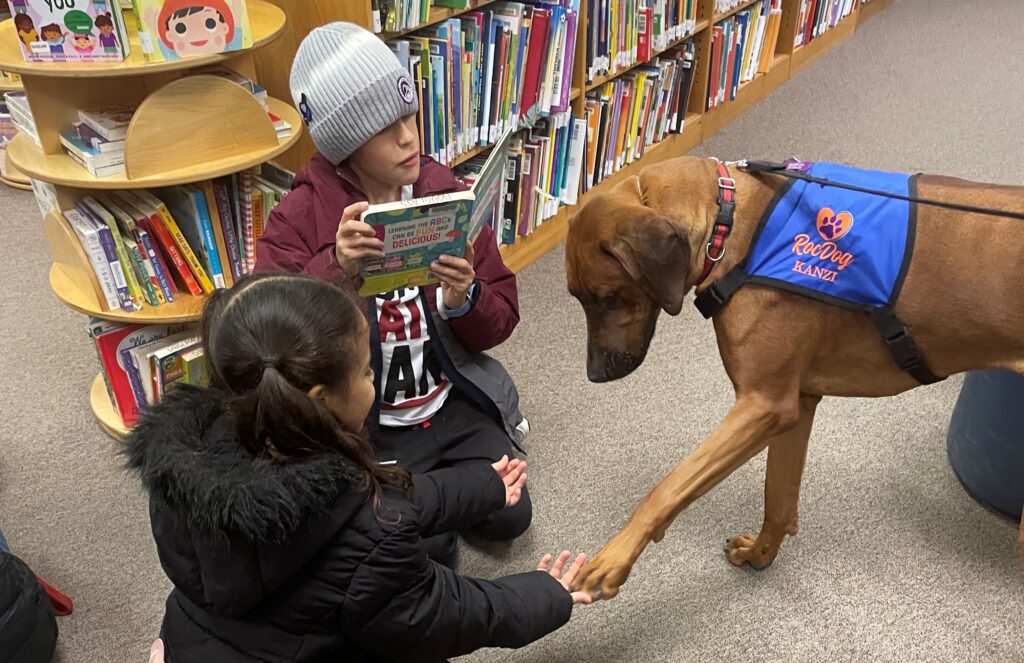
President and founder of RocDog, Paul Anthony, knew he wanted to make a difference in the Rochester community through therapy dog work. After a failed search for a group that would certify his puppy in 2021, Anthony decided to create his own organization.
“I wanted to have a therapy dog,” says Anthony. “So, I actually bought a puppy, raised the puppy, trained the puppy, and when it was time to get him certified, the pandemic was going on, and all of the national therapy groups were shut down. In February of 2021, I basically just decided to create my own group,” says Anthony.
RocDog grew quickly. Their first dog became therapy-certified in May of 2021. By the end of the first year, they certified seventy-two dogs. In the second year, they grew to 120. Today, two and a half years in, RocDog boasts 181 dogs and more than 200 volunteers.

To become a certified therapy dog, certain training is required.
“So, with therapy dog groups, you can’t just get a dog and train him really well and say he’s a therapy dog,” says Anthony.
According to Anthony, therapy dogs must pass a test after two months of training. Any dog who is not aggressive or a bite risk is eligible to become a therapy dog depending on their temperament. Once certified, dogs can begin to go on visits where they will get on-the-job training.
For RocDog, these visits include more than 300 events each month.
“I think that’s one of the things that has made us successful,” says Anthony. “We go to a lot of different places. We are involved with law enforcement; we are at elementary schools, high schools, colleges, nursing homes, hospitals, you name it, we are there. We have agreements with probably 150 places in eight different counties,” says Anthony.

People who attend these events often seek a retreat from their daily lives. For example, RocDog goes to local schools and universities to help students destress during midterms and finals. RocDog has a weekly event on SUNY Brockport’s campus every Thursday where students can come and spend time with therapy dogs for one hour.
“We will have three or four dogs and all just sit on the floor and all have a good time,” says Anthony.
Anthony brings his dog to senior homes where residents may have lost spouses or had to give up their own dogs. Seeing these therapy dogs, even just for a short time, provides them with some comfort.
“[The nursing home residents’] faces light up, and they tell us all kinds of stories,” says Anthony. “It’s not just the dog; when we go to a senior home the dogs are like the conduit to bring people out of their shell. They are that tactile element you’re going to touch and interact with. Then the handler is also going to sit and talk and interact with the person. The handler is a really important part of that process,” says Anthony.
RocDog would not be as successful as they are if it weren’t for its 220 volunteers, a number that is continuing to grow. Anthony uses specialized scheduling software that makes signing up for events easy for the volunteers. Volunteers must go through a background check and get observational visits with their dogs before starting at RocDog. This is to ensure that the dogs behave appropriately.
Anthony hopes that RocDog will continue to grow in the upcoming years. He describes the work as rewarding for both him and his dogs.
For more information on RocDog events and volunteer information, visit rocdog.org.
Views: 7




